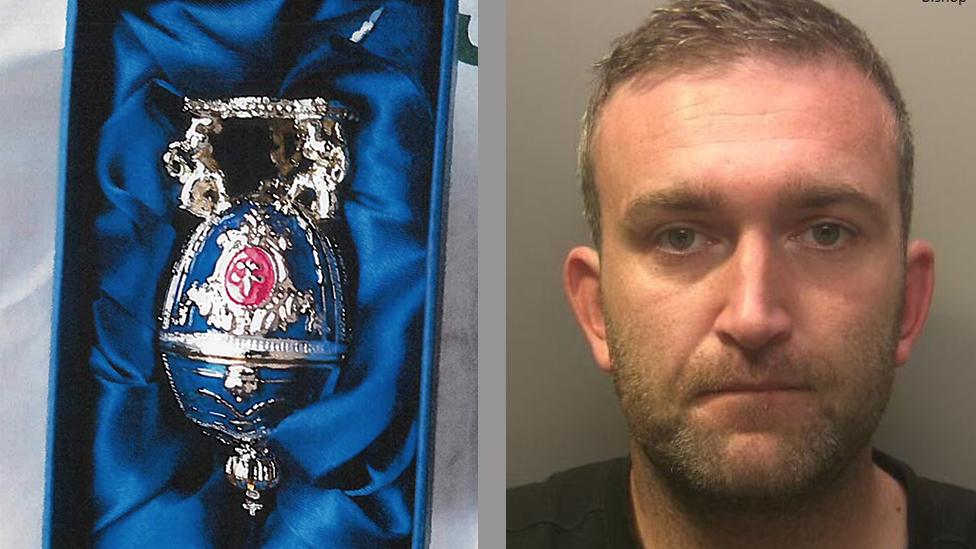Rare Fabergé egg displayed at Polesden Lacey stately home
- Published
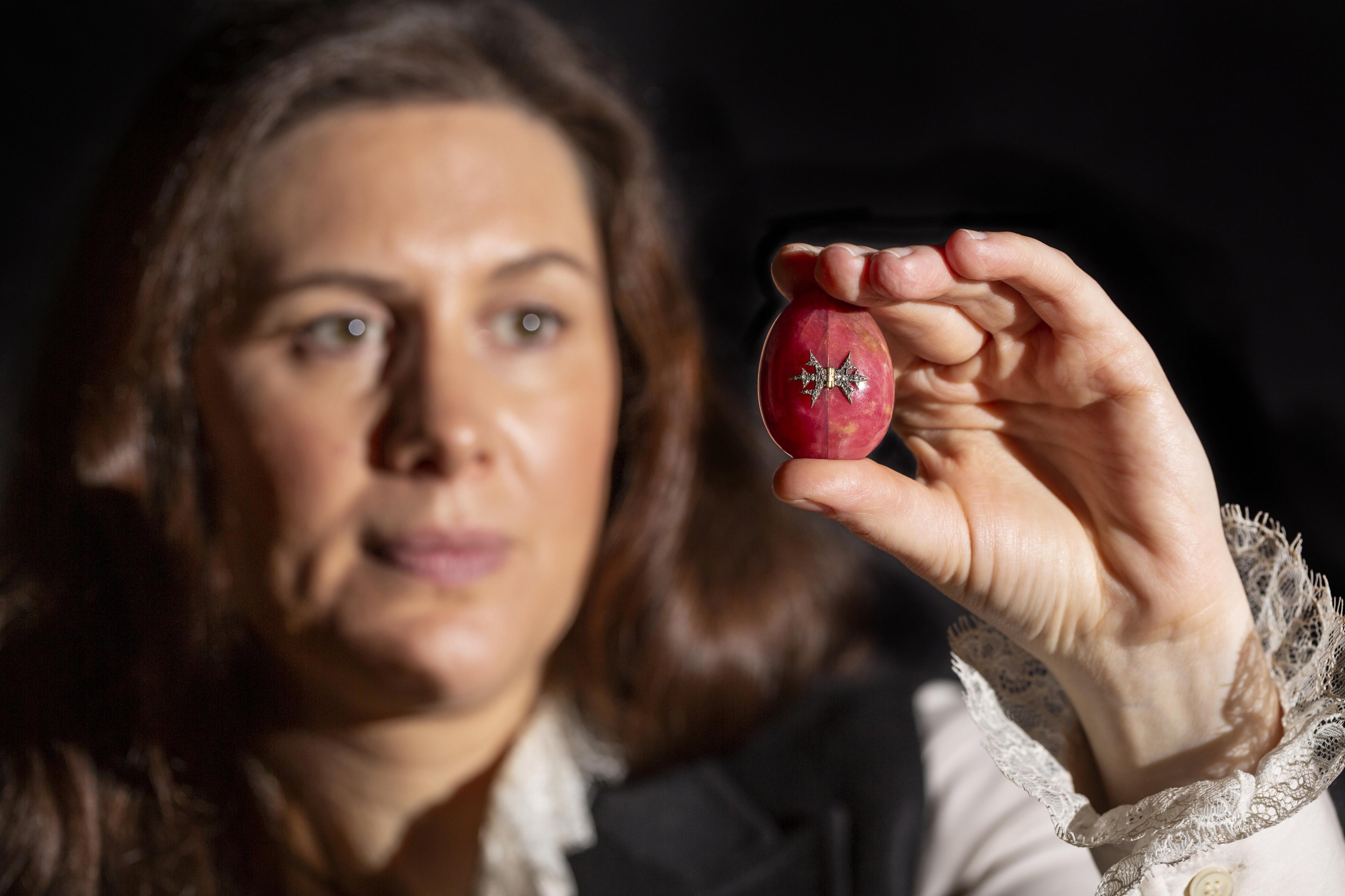
This rare Fabergé egg is part of a new exhibition at Polesden Lacey
A rare ornamental egg made by one of the world's most renowned jewellers has gone on display at a stately home.
The Fabergé egg - once owned by a society hostess - is on show at Polesden Lacey, in Surrey.
The exhibition has five pieces designed by Peter Carl Fabergé, including the rare egg, which has a rose-cut diamond clasp in the shape of a snowflake.
Only a few dozen eggs were created by the St Petersburg-born jeweller. One of them sold for around £20m in 2014.
The eggs were made for the Russian Imperial family - along with a number for private clients - from 1885 until Tsar Nicholas II was forced to abdicate in 1917.
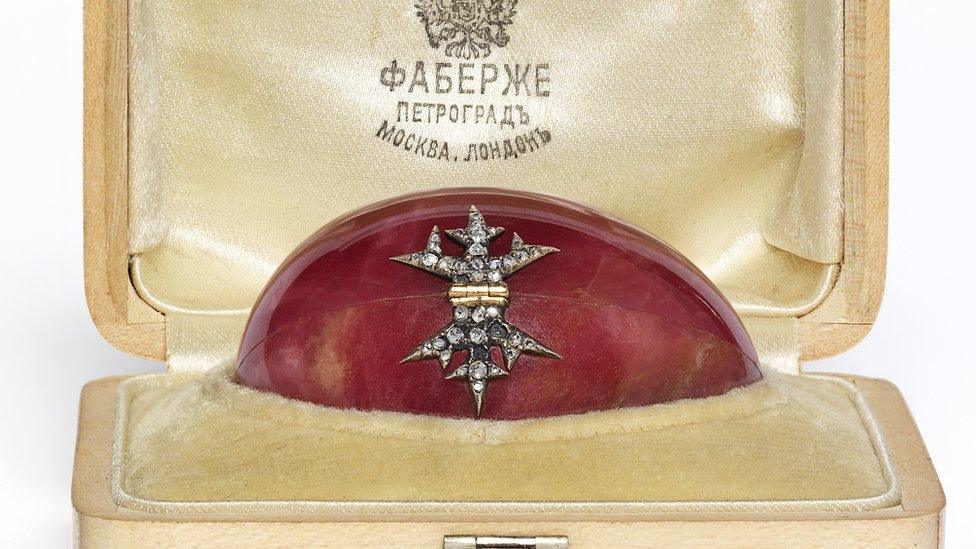
The Fabergé egg on display features a rose-cut diamond clasp in the shape of a snowflake
Polesden Lacey was the former country retreat of society hostess and collector Margaret Greville.
She is known to have made 31 purchases from Fabergé, who set up a shop in London in 1903.
The National Trust property, near Dorking, is now home to one of the largest group of Fabergé objects in the UK, according to the charity.
The National Trust's Fabergé expert, John Benjamin, said the collection provided a "lightning conductor to an era now long gone".
Objects with royal links will also be on display ahead of the Platinum Jubilee this year, including a snuff box presented to Mrs Greville by Edward VII and a ruby and diamond brooch worn to his coronation.
The former monarch was guest of honour at Mrs Greville's first house party in 1909 and reportedly said that her "gift for hospitality" amounted to a "positive genius".
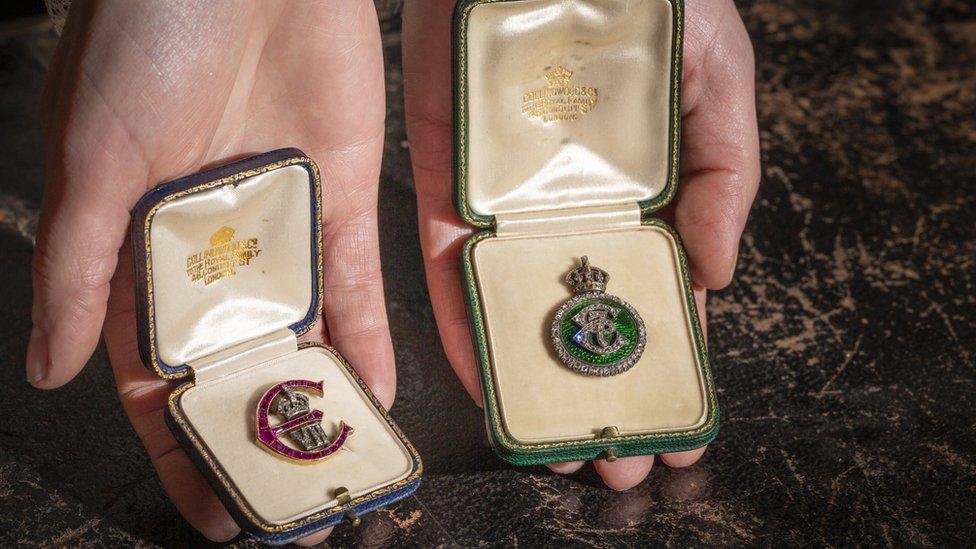
This pair of Edwardian brooches with a cipher of Edward VII feature in the exhibition
Jonathan Marsh, Polesden Lacey's house manager, said: "Margaret Greville's guests here included royalty, politicians, international heads of state and celebrities.
"Her collection of art and objects is a reflection of her prestige and prominence and we're excited to be able to tell that story in this major exhibition."
The exhibition, Treasured Possessions: Riches of Polesden Lacey, marks 80 years since Mrs Greville left her country home to the National Trust.
It displays more than 100 objects, some on show for the first time.
The exhibition runs until the end of October, reopening next March through to October 2023.

Follow BBC South East on Facebook, external, on Twitter, external, and on Instagram, external. Send your story ideas to southeasttoday@bbc.co.uk.
Related topics
- Published12 September 2019
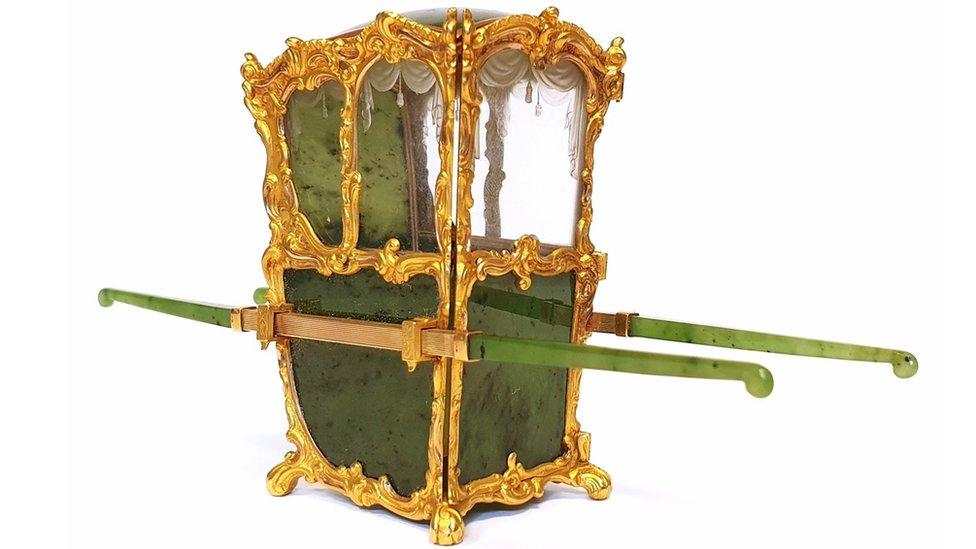
- Published19 October 2010
- Published20 March 2019
